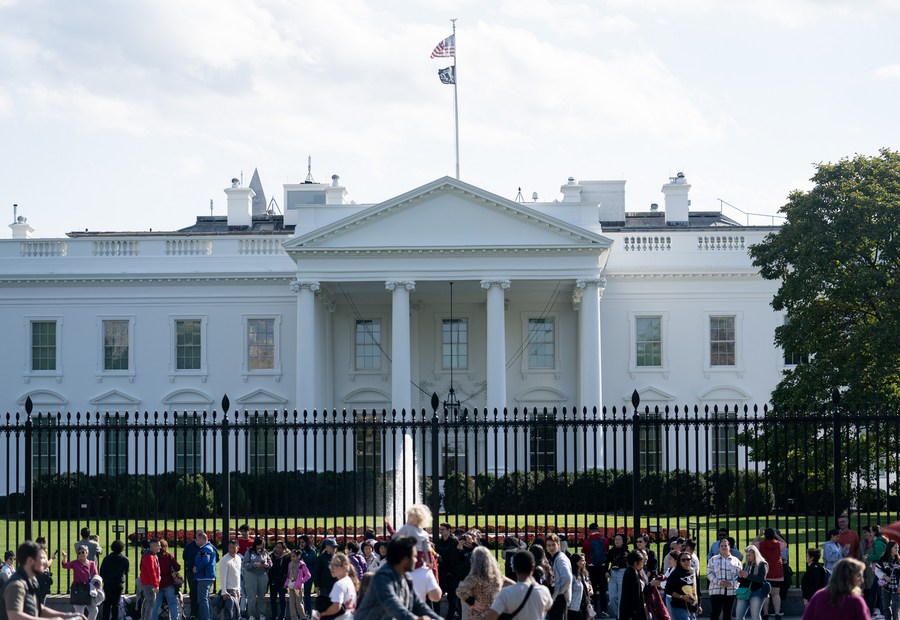
Photo taken on Oct. 9, 2023 shows the White House in Washington, D.C., the United States. (Xinhua/Liu Jie)
The top four outlays in fiscal year 2023 were social security, health, Medicare and national defense.
WASHINGTON, Oct. 20 (Xinhua) -- The U.S. federal government recorded a budget deficit of nearly 1.7 trillion dollars in fiscal year 2023, which ended in September, up 23.2 percent from the previous fiscal year, the Treasury Department reported Friday.
The huge deficit came as revenue fell by 457 billion dollars from a year ago to reach 4.4 trillion dollars, while expenses decreased by just 137 billion dollars to 6.1 trillion dollars, according to the department's Final Monthly Treasury Statement.
The latest budget shortfall has added to the already ballooning U.S. debt, which now stands at a staggering 33.6 trillion dollars.
Peter G. Peterson Foundation, a nonpartisan organization dedicated to addressing the U.S. long-term fiscal challenges, noted that U.S. deficits are mainly caused by aging baby-boom generation, rising healthcare costs, and "a tax system that does not bring in enough money to pay for what the government has promised its citizens," adding that the COVID-19 crisis has "accelerated an already unsustainable fiscal trajectory."
"How we got here is a long story of repeated chapters of fiscal irresponsibility on both sides of the aisle. Leaders in Washington have made imprudent decisions over decades, time and again choosing a favorite new tax cut or spending program above our collective future," Michael A. Peterson, CEO of the foundation, said when the national debt hit 30 trillion dollars in early 2022.
The top four outlays in fiscal year 2023 were social security, health, Medicare and national defense.
Net Interest reached 659 billion dollars, ranking six in the outlays and accounting for 10.7 percent of the total outlays, which indicated growing cost to finance the debt amid higher interest rates. Since March last year, the central bank has rapidly raised interest rates from near zero to a range of 5.25-5.5 percent, in an effort to fight inflation.
"Rising interest costs pose a growing danger and are increasingly difficult to ignore," the Committee for a Responsible Federal Budget, a non-profit budget watcher, said in a statement earlier.
"To mitigate these costs, lawmakers should enact thoughtful and responsible fiscal reforms that limit additional borrowing, reduce inflationary pressures, push down interest rates, and support stronger economic growth," the committee said, urging lawmakers to establish a fiscal commission. ■











